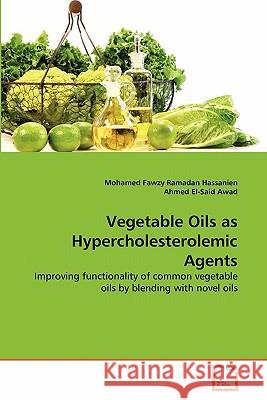Vegetable Oils as Hypercholesterolemic Agents » książka
Vegetable Oils as Hypercholesterolemic Agents
ISBN-13: 9783639351149 / Angielski / Miękka / 2011 / 80 str.
The objective of the current study was to investigate the effect of different blended vegetable oils having different levels and profiles of polyunsaturated fatty acids (PUFA) on hypercholesterolemia by analyzing the changes of lipid profile in high cholesterol diet fed rats. Rats fed blended oils showed significantly lower levels of total cholesterol (TC), total triacylglycerol (TG) and total low density lipoprotein (LDL) cholesterol as well as higher levels of high density lipoprotein (HDL) cholesterol in comparison with animals fed HCD and cholesterol free diet (CFD). Thus, oil blends under study may be useful formulations for the treatment of hypercholesterolemia. In addition to improving the lipid profile by lowering TC, TG and LDL and increasing HDL, blending of vegetable oils can result in an economic advantage of lower prices.
The objective of the current study was to investigate the effect of different blended vegetable oils having different levels and profiles of polyunsaturated fatty acids (PUFA) on hypercholesterolemia by analyzing the changes of lipid profile in high cholesterol diet fed rats. Rats fed blended oils showed significantly lower levels of total cholesterol (TC), total triacylglycerol (TG) and total low density lipoprotein (LDL) cholesterol as well as higher levels of high density lipoprotein (HDL) cholesterol in comparison with animals fed HCD and cholesterol free diet (CFD). Thus, oil blends under study may be useful formulations for the treatment of hypercholesterolemia. In addition to improving the lipid profile by lowering TC, TG and LDL and increasing HDL, blending of vegetable oils can result in an economic advantage of lower prices.











